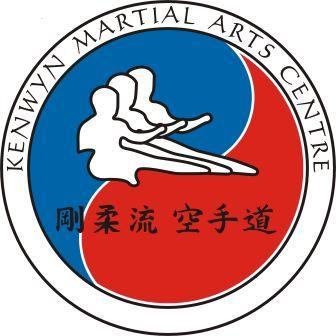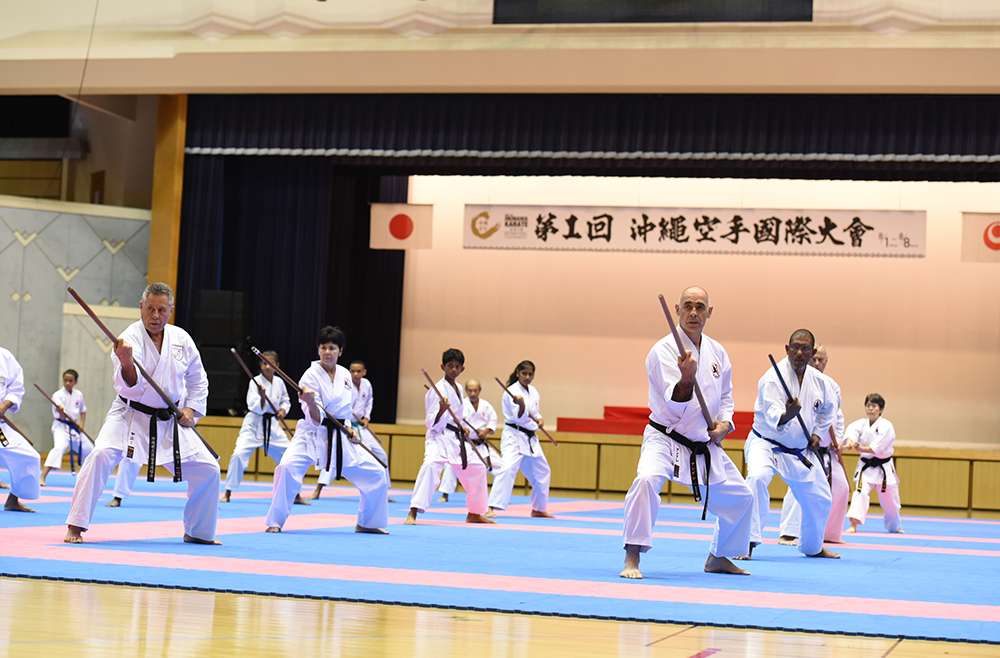Learning Kobudo, the traditional Okinawan martial art of weaponry, offers a unique and enriching complement to Karate. The practice of Kobudo not only enhances your martial arts skills but also provides numerous physical, mental, and philosophical benefits. Here’s why you should consider learning Kobudo:
1. Expanded Skill Set and Versatility
- Complement to Karate: Kobudo is often practiced alongside Karate because it enhances and deepens your understanding of martial arts. The study of weapons like the bo (staff), nunchaku, sai, tonfa, and others, introduces new movements and principles that are not only physically demanding but also improve your overall martial arts ability.
- Improves Hand-Eye Coordination: Using weapons requires fine control, agility, and precision. Kobudo training improves hand-eye coordination, making you more adept at both armed and unarmed techniques in Karate.
- Fights with Different Tools: Karate typically focuses on empty-hand techniques, but Kobudo introduces the concept of fighting with various weapons. Understanding how to use weapons can help you adapt to different situations and give you a tactical advantage in combat scenarios.
2. Increased Physical Fitness and Strength
- Full-Body Workout: Kobudo requires the use of the entire body, including the core, legs, arms, and shoulders. The repeated movements, stances, and strikes help to increase overall strength, flexibility, and stamina.
- Grip Strength: Weapons like the bo (staff) and nunchaku require a firm grip, and training helps develop significant hand and forearm strength, which can also benefit your empty-hand Karate techniques.
- Enhanced Balance and Coordination: Because Kobudo involves using long, often heavy weapons, it forces you to maintain your balance and move with precision. The dynamic movements improve coordination, timing, and spatial awareness, which also transfers to your unarmed Karate practice.
3. Increased Focus and Mental Discipline
- Sharpened Focus: The study of Kobudo requires intense concentration, both in learning the movements and in understanding how each weapon works. Like Karate, it’s not just about physical action; it’s about developing mental clarity, focus, and control.
- Patience and Persistence: Learning weapons in Kobudo can take time and patience, especially since each weapon has its own set of forms (katas) and techniques to master. This reinforces the core principles of perseverance and self-discipline that are central to Karate.
- Strategic Thinking: The use of weapons requires an additional layer of strategy. You need to think about distance, timing, and how to anticipate an opponent’s moves. This cultivates your ability to think quickly and make decisions under pressure.
4. Better Self-Defense Skills
- Practical Self-Defense: Knowing how to handle weapons can enhance your ability to defend yourself, both in armed and unarmed situations. For instance, understanding how to disarm an attacker with a stick or knife can provide a practical advantage in real-world situations.
- Weapon Familiarity: Many self-defense scenarios involve weapons. By learning Kobudo, you gain familiarity with common weapons and learn how to defend against them, which is an invaluable addition to your self-defense training.
5. Cultural and Historical Appreciation
- Okinawan Tradition: Kobudo is deeply rooted in Okinawan history and culture. By learning it, you connect with a rich tradition of martial arts that dates back centuries. The weapons used in Kobudo were often improvised tools (like farming implements) that were adapted for self-defense during times when weapons were prohibited. This adds a layer of cultural significance and history to your practice.
- Respect for Weapons: In Kobudo, each weapon is treated with respect, and there is a strong focus on etiquette, care, and maintenance. This teaches you reverence not only for the weapons themselves but also for the martial art as a whole.
6. Enhanced Understanding of Karate
- Increased Power and Precision: The techniques learned in Kobudo often require great focus and precision. These lessons can transfer to your Karate practice, helping you deliver more powerful and controlled strikes and blocks.
- Concept of Distance and Timing: In Kobudo, the use of weapons teaches important concepts like timing, distance, and reach, which can directly enhance your understanding of these elements in Karate.
- Movement and Flow: Many of the principles of movement, flow, and body mechanics that are essential in Karate are similarly emphasized in Kobudo. The study of weapons reinforces concepts of motion, balance, and how to use your body’s energy in efficient ways.
7. Improved Discipline and Confidence
- Confidence in Combat: Mastering a weapon gives you greater confidence in your ability to defend yourself. This confidence translates into greater self-assurance, not only in physical confrontations but also in your day-to-day life.
- Character Building: Like Karate, Kobudo instills important virtues such as respect, humility, honor, and patience. These traits build character and contribute to your personal growth as a martial artist and an individual.
8. Fun and Variety
- Variety in Training: Learning Kobudo adds variety to your martial arts training. Instead of focusing solely on unarmed techniques, you can expand your training to include a wide range of weapons, each with its own unique challenges.
- Challenge and Enjoyment: For many Karate practitioners, the addition of Kobudo provides a fun and challenging way to deepen their practice. Mastering new techniques and weapons adds excitement to your training routine and keeps your martial arts journey fresh and engaging.
9. Sense of Accomplishment
- Achieving Mastery: As with Karate, progress in Kobudo is measured by the mastery of forms (katas) and techniques. Advancing in Kobudo through consistent practice and the successful completion of each kata gives you a deep sense of accomplishment and pride.
- New Goals: Learning weapons introduces new goals to work towards, such as perfecting each kata or achieving a higher rank. The continuous progression keeps you motivated and provides a sense of purpose in your martial arts journey.
10. Spiritual and Philosophical Growth
- Mindfulness and Presence: Training in Kobudo encourages mindfulness and being present in the moment. The precise movements required to wield weapons teach you to be aware of your surroundings, your body, and your state of mind, creating a deeper sense of peace and mental clarity.
- Connection to Martial Arts Philosophy: The principles of karate-do (the way of Karate) apply to Kobudo as well. Both arts emphasize self-improvement, focus, respect for others, and dedication to lifelong learning. The study of weapons enriches your broader martial philosophy.
Conclusion: Why Learn Kobudo?
Kobudo adds a valuable dimension to your martial arts practice, providing a deeper connection to the rich tradition of Okinawan martial arts, enhancing your physical fitness and mental discipline, and giving you new tools to improve both your Karate and self-defense skills. It expands your martial arts repertoire, challenges you in new ways, and provides profound philosophical and spiritual benefits. Whether you’re looking to become a more well-rounded martial artist, gain practical self-defense skills, or simply enjoy a deeper connection with the traditions of Karate, learning Kobudo offers an exciting and rewarding path.

